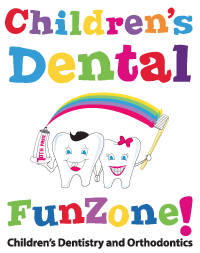Questions Every Parent Should Ask Before Choosing a Pediatric Dentist
When it comes to your child's dental care, selecting the right pediatric dentist is one of the most important decisions you can make. Knowing the right questions to ask ensures that your child receives the best possible care while building positive experiences that will shape their view of dental health for years to come. Pediatric dentistry is a specialized field that focuses on the unique needs of children, from infancy through adolescence, and differs greatly from general dentistry. Children face challenges such as dental anxiety, cavities, and developmental issues that require specialized training and approaches. According to the Center for Pediatric Dentistry, more than 40% of children have dental cavities by the time they reach kindergarten, making early and specialized care essential. By asking thoughtful questions, parents can feel confident that their chosen pediatric dentist will provide comprehensive, compassionate, and child-friendly care.
What Qualifications and Experience Does The Pediatric Dentist Have?
The first step in evaluating a pediatric dentist is to understand their qualifications and experience. Pediatric dentists complete several years of additional education beyond general dentistry, with training that equips them to manage the growth and development of children’s teeth and jaws. Their education often includes coursework in child psychology and behavior management, enabling them to ease the fears of young patients and communicate in ways children understand.
Beyond formal schooling, certification is an important indicator of expertise. Pediatric dentists who are board-certified have demonstrated advanced knowledge and a commitment to maintaining high standards in the field. This certification assures parents that the dentist is not only trained but also regularly evaluated for competency.
Experience is equally significant. A pediatric dentist who has spent years working with children will have encountered a wide variety of dental concerns, from routine checkups to complex oral health challenges. This experience gives them the ability to anticipate issues, identify problems early, and provide effective solutions. Parents should also ask about any specialized training, such as sedation dentistry or emergency management, which may be necessary for children with higher levels of anxiety or unique health conditions.
Finally, professional affiliations add another layer of credibility. Membership in organizations such as the American Academy of Pediatric Dentistry ensures that the dentist remains up to date with the latest research, techniques, and technology. By asking about education, certification, experience, and affiliations, parents can feel confident that their child’s dentist has the qualifications to provide top-notch care.
How Does The Pediatric Dentist Address Dental Anxiety in Children?
Dental anxiety is a common concern among children, and how a pediatric dentist addresses it can significantly affect your child’s willingness to return for future visits. One of the most effective strategies is gentle communication. Skilled pediatric dentists use calm tones, simple explanations, and reassurance to make dental visits less intimidating. By describing procedures in child-friendly terms—such as referring to fluoride as “tooth vitamins”—dentists can transform a potentially frightening experience into one that feels approachable and even fun.
Distractions also play a key role in reducing anxiety. Many pediatric practices provide games, movies, or music in the waiting area and treatment rooms to create a lighthearted environment. These tools allow children to associate dental visits with entertainment rather than fear. Some offices also offer innovative distractions during treatment, such as ceiling-mounted televisions or virtual reality headsets, which help keep children engaged and calm.
Parental involvement is another valuable factor in managing anxiety. Dentists often encourage parents to stay in the room during checkups or treatments, providing a sense of security and reassurance. A parent’s calm presence can make all the difference in helping a child remain relaxed.
What Preventive Care Strategies Are Recommended for Children?
Preventive care is the cornerstone of pediatric dentistry, as it sets the stage for lifelong oral health. Regular checkups—usually recommended every six months—allow the dentist to monitor the growth of teeth and gums, identify early signs of cavities, and provide thorough cleanings. These visits also give children the opportunity to develop familiarity with their dentist, which reduces fear over time.
Fluoride treatments are another essential preventive measure. Fluoride strengthens tooth enamel and helps protect against decay, which is particularly important since cavities are so prevalent in young children. With more than 40% of children developing cavities by kindergarten, fluoride applications serve as an effective safeguard against tooth decay.
Sealants also play a valuable role in prevention. Applied to the chewing surfaces of back teeth, sealants act as a barrier against plaque and acids. They are quick, painless, and can last for years, offering significant protection for cavity-prone areas.
Nutrition counseling is another way pediatric dentists promote preventive care. Children who consume excessive sugary snacks and drinks are at higher risk for cavities, while diets rich in fruits, vegetables, and dairy products strengthen oral health. By teaching both parents and children about the impact of diet, pediatric dentists reinforce the importance of healthy habits outside the dental office.
Finally, oral hygiene education is emphasized at every appointment. Interactive demonstrations and encouragement help children develop proper brushing and flossing techniques, creating habits that will last into adulthood. Preventive care is not just about avoiding problems; it is about building a strong foundation for a lifetime of healthy smiles.
How Does The Pediatric Dentist Create a Child-Friendly Environment?
The environment of a dental practice has a profound effect on how children perceive dental visits. Many pediatric dentists design their offices with bright colors, playful decorations, and themed waiting rooms that make children feel welcome. These elements transform the dental office from a sterile, intimidating space into a warm and inviting place where children can feel comfortable.
Staff interaction is another important part of creating a child-friendly environment. From the front desk team to dental assistants, every staff member should be trained to engage with children in a patient, friendly, and supportive manner. Positive interactions at every touchpoint build trust and make appointments more enjoyable.
Distraction and entertainment techniques are often integrated into both waiting areas and treatment rooms. Whether it’s toys, games, or shows playing on a screen, these elements help children relax and create positive associations with their dental care.
Treatment rooms designed with child-sized furniture, colorful chairs, and cheerful themes further reduce anxiety. A pediatric dentist who pays attention to these details demonstrates an understanding of how the environment influences a child’s experience.
Finally, many practices use rewards and positive reinforcement to encourage cooperation. Whether it’s a small toy, sticker, or certificate, these gestures help children leave their appointment feeling proud and accomplished. This positive reinforcement fosters confidence and creates a lasting sense of achievement associated with dental visits.
Choosing the right pediatric dentist is one of the most important steps in supporting your child’s long-term oral health. By asking about qualifications, approaches to anxiety, preventive care strategies, emergency protocols, and child-friendly environments, parents can ensure that their children receive comprehensive and compassionate care. Every detail, from the training of the dentist to the design of the office, contributes to creating a positive experience that builds lifelong trust in dental care.
Your child deserves a dentist who not only treats their teeth but also nurtures their confidence and well-being. Take the time to ask the right questions, evaluate your options, and make an informed choice that will benefit your child for years to come. If you are ready to provide your child with exceptional dental care in a welcoming environment, contact Children's Dental FunZone today and take the first step toward a healthy, confident smile.





